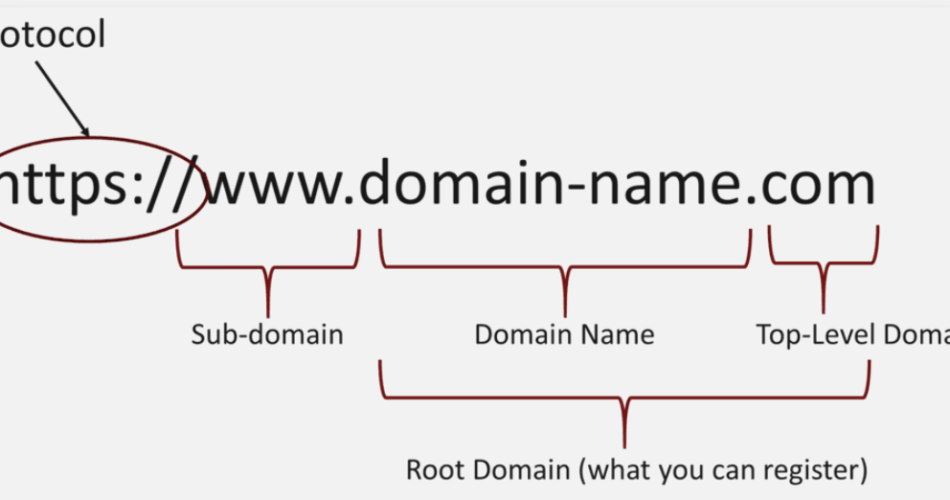A domain name is a unique and easily recognizable address that identifies a website on the internet. It serves as the online identity of a website, allowing users to access it by typing the domain name into their web browser.

Domain Name
In simpler terms, a domain name is like the physical address of a house. It is the specific location where your website can be found on the vast network of interconnected computers known as the internet.
A domain name is composed of two main parts: the actual name and the domain extension. The name is the unique and memorable part that you choose, such as “example” in the web address “example.com.” The domain extension is the suffix that follows the name, such as “.com,” “.org,” “.net,” or country-specific extensions like “.us” or “.uk.”
web addresses are registered and managed by domain registrars, which are authorized companies or organizations. When you want to create a website, you need to choose a web address that reflects your brand, business, or purpose. It should be relevant, memorable, and easy to spell.
Here are a few key points to understand about domain names:
Branding
A web address plays a crucial role in branding your website and establishing its online presence. It should align with your brand and make it easy for users to identify and remember your website.
Extension Selection
The choice of web address extension depends on the nature of your website and its target audience. Different extensions have different purposes, such as “.com” for commercial websites, “.org” for organizations, and “.edu” for educational institutions.
Availability and Registration
Before registering a web address, it’s important to check its availability. Many domain registrars provide search tools to verify if a domain name is already taken. If it’s available, you can register it for a specified period, usually one to ten years, and renew the registration before it expires.
DNS Management
Domain names are associated with IP addresses, which are numerical values that identify specific web servers. Domain Name System (DNS) management allows you to link your web address with the IP address of your web hosting server. This ensures that when someone enters your domain name, they are directed to the correct web content.
Subdomains
In addition to the main web address, you can create subdomains that act as extensions of your primary domain. For example, “blog.example.com” is a subdomain of “example.com.” Subdomains can be used to organize different sections or functions of your website.
Understanding the significance of web address is essential when establishing an online presence. It’s important to choose a domain name that represents your brand effectively and resonates with your target audience. A well-chosen and properly managed web address can contribute to the success and recognition of your website on the internet.
